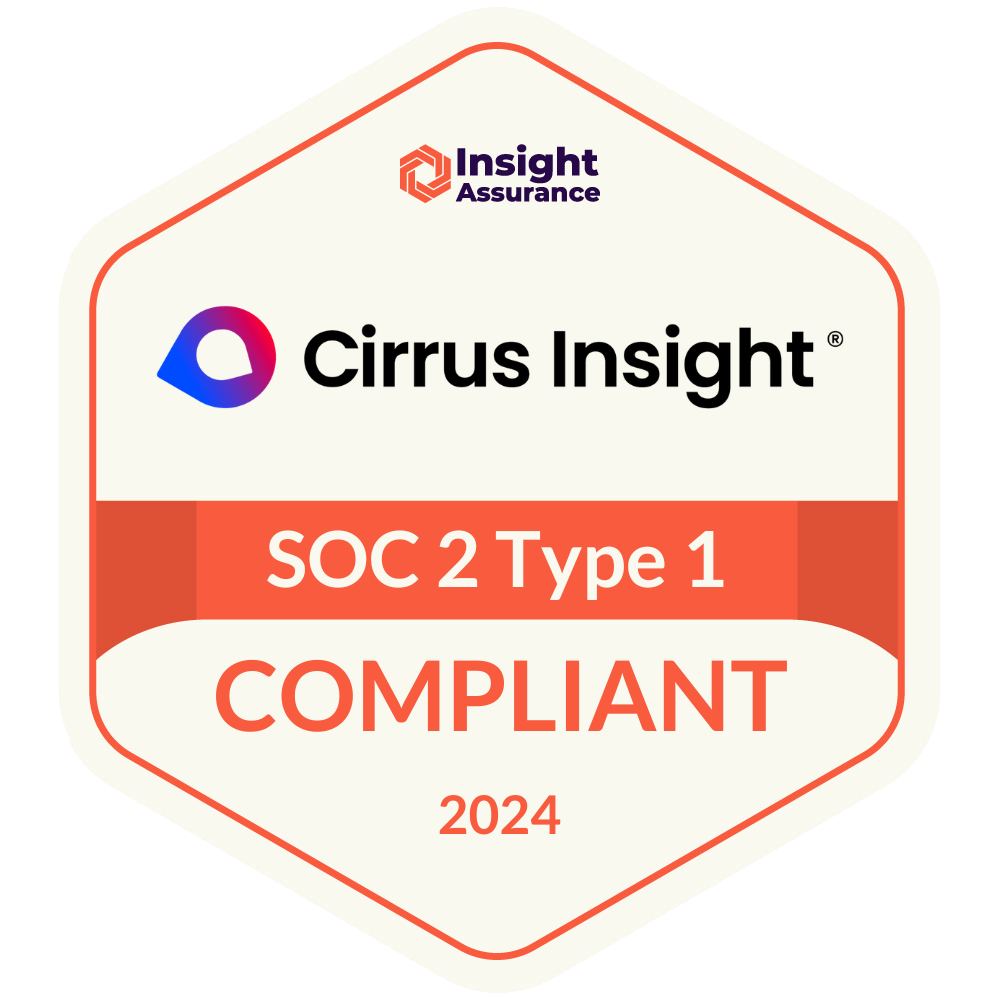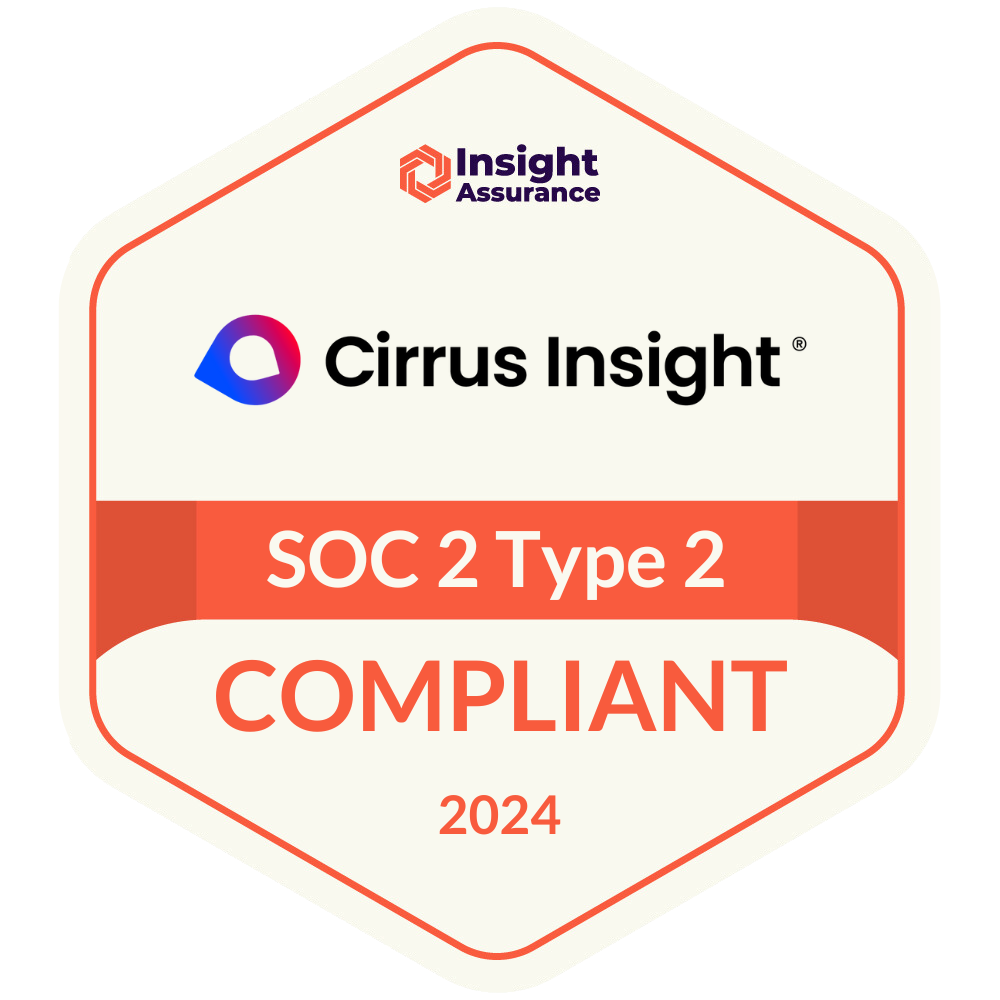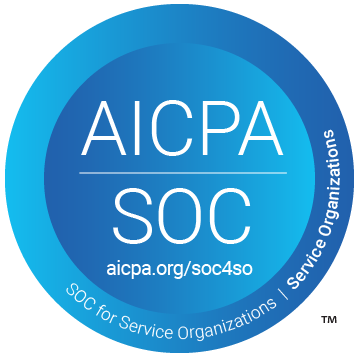- Solutions
-
Products
-
Resources
Sales Automation Tools | Cirrus Insight by Kristi Campbell View all Blog Posts >Get the App, Get the Sidebar, & Get Your Trial Going HereUnleash limitless growth opportunities by partnering with Cirrus Insight.
- Pricing
Filter By:
- All topics
- Sales Productivity
- Sales Intelligence
- Salesforce
- Sales Strategy
- Sales Prospecting
- Book More Meetings
- Best of
- Company News
- Product
- Sales Leadership
- CRM Admininstration
- Sales Metrics
- Supercharge Sales Activity
- Team Scheduling
- Admin
- serious insights
- Prospect Smarter
- Sales Activity Data
- Sales Forecasting
- Scheduling Solutions
- Prospect Faster
- Auto-Sync Everything To Your CRM
- Chrome
- Comparison
- Financial Services
- For Admins
- Getting Started
- IT & Security
- outlook
Subscribe to our Blog for the Latest Insights
Join our blog community to stay informed and receive fresh content and actionable tips directly in your inbox.
How to Maximize Your Meetings Scheduled KPI with Automated Scheduling
The Growing Importance of “Meetings Scheduled” as a Sales KPI
While many sales teams still place the highest importance on KPIs such as the number of leads generated, emails sent, or monthly sales growth, many organizations are beginning to focus on additional KPIs that have shown to be just as important.
The LevelEleven research team analyzed 3,000+ key performance indicators being used by 800+ sales teams.
The chart below from their report shows the most common sales KPIs used by sales development teams.
“Meetings Scheduled” is one of the most commonly-used sales KPIs, second only to “Calls”:
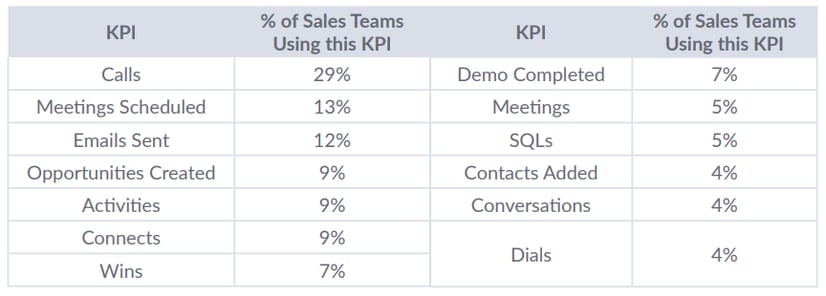 Image Credit: leveleleven
Image Credit: leveleleven
The reason for this is simple; if you can get a lead to commit to a specific time to meet with you, your chances of getting them on the phone and successfully winning them as a customer increase dramatically.
As a sales leader, you have a good general sense of which activities lead to revenue and which do not. You know that your sales team will generate more revenue by booking meetings than by preparing expense reports.
Meetings and calls activity are strong predictors of sales success, which is why they are such important KPIs to focus on. The more your salespeople engage in these activities, the more revenue they generate.
Unfortunately, there are 2 factors hindering sales organizations’ performance on this KPI:
- The process of actually scheduling those meetings is often much more difficult and time-consuming than it needs to be.
- Capturing the activity data in the CRM is a tedious process for sales reps, so many of them skip capturing it, making the data unreliable.
Scheduling back-and-forth results in wasted time and lost sales
As you know, the leads in your sales pipeline that you have invested time and resources into can suddenly go cold and stop responding if any part of the process becomes too slow or difficult.
One of the biggest reasons leads go cold is that the simple act of booking a meeting with a sales rep so they can discuss their needs over the phone is often too tedious and time-consuming.
Typically, a lead will reach out to set up a meeting, and they will be sent a few days and times when a sales rep is available.
If the schedules don’t match up, or someone’s availability changes, it becomes a seemingly endless series of back-and-forth emails just to find a time that works for both parties.
According to readwrite.com, an average of 4.8 hours per week is spent scheduling meetings.
Additionally, Hubspot reports that sales reps spend an average of 5.5 hours a week just entering contacts and activities into CRM.
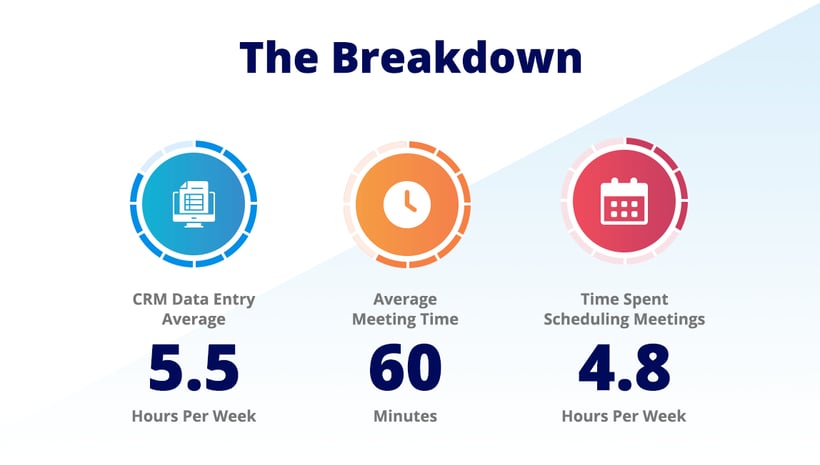
The benefits of automated scheduling
With a tool like Calendar Scheduling from ZynBit, you can simply send your leads a URL link where they can see a real-time calendar of all of your available times, localized to their time zone.
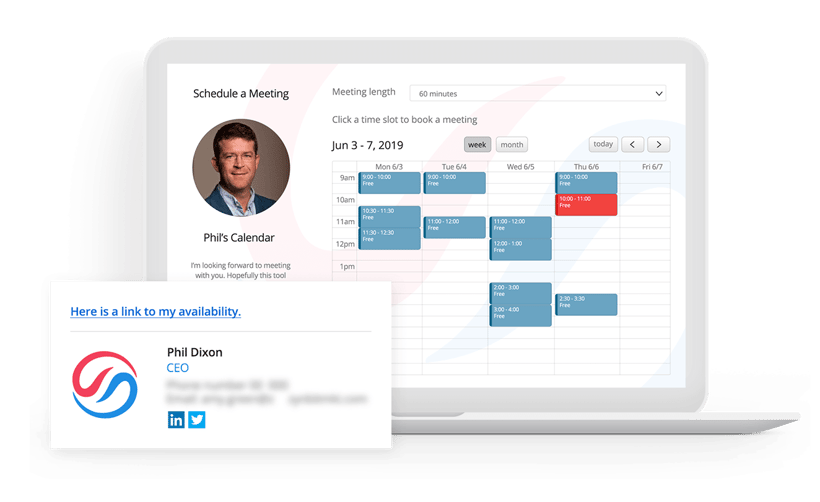
The lead can then select the day, time, and meeting type that works best for them, and book the meeting instantly.
There’s no more back-and-forth, which means more meetings get scheduled, and more deals are won.
It’s critical to make every sales interaction painless and high-value“Engaging with sales is one of the most important aspects of your customer experience to get right. It’s often the first human touch as the customer transitions from researching vendors, to evaluation and purchase. It’s critical to make every sales interaction painless and high-value to keep your customers engaged in the buying cycle with you.” - Phil Dixon, CEO, ZynBit
The benefits of automated calendar sync
Better yet, ZynBit not only adds the meeting directly to your calendar (Gmail, Exchange, or Office 365), it also automatically syncs the meeting and contact details with your Salesforce account. No more manual data entry!
The process of manually entering sales activity and customer data into Salesforce is often extremely tedious and frustrating, decreasing the chances that sales reps will actually take the time to do it. Sales leaders rely on this critical data in order to make precise sales management decisions.
Calendar sync for multi-channel scheduling
Further, there is a major trend toward multi-channel scheduling - that is, the ability for cross-department scheduling and logistics planning when customers are onsite or on the phone, but not with an assigned representative. One department can easily search for the appropriate representative based on skills, geography or record assignment in Salesforce, then instantly dispatch representatives from other departments.
This workflow proves to be impossible unless 100% of everyone’s calendar availability is synchronized with Salesforce in real-time. Accurate, timely calendar sync is a pre-requisite to multi-channel scheduling. Yet, Salesforce does not support all-day or recurring events, and any attempt to enable multi-channel scheduling from within Salesforce will fail.
ZynBit solves this problem by keeping all calendars synced with Salesforce, including recurring events and all-day events.
With ZynBit’s automated calendar sync, sales reps can carry out their work like they normally do, sending emails, booking appointments, making phone calls, etc. As they work, ZynBit automatically tracks all of their sales activities, without them having to think about it.
- For the Sales Rep: Sharing your availability and collaborating to schedule your next meeting is as simple as sharing a URL link. Customers and prospects can see your free/availability in real-time and book a time that works best for them.
- For Sales Managers: Map out your customer engagement process with meeting types in order to track the different meetings and meeting volume it takes to manage an opportunity through to close.
- For Marketing: Direct your web forms directly to meeting pages to allow new prospects and customers to book in real time while they are already on your website. Don’t let opportunities go cold or get stale with routing of web forms through email.
Schedule More Meetings and Close More Deals with ZynBit
If you’d like to start taking advantage of ZynBit’s powerful, automated calendar tool, you can try it for free for 14 days:Start a 14-day free trial - No credit card required ►



